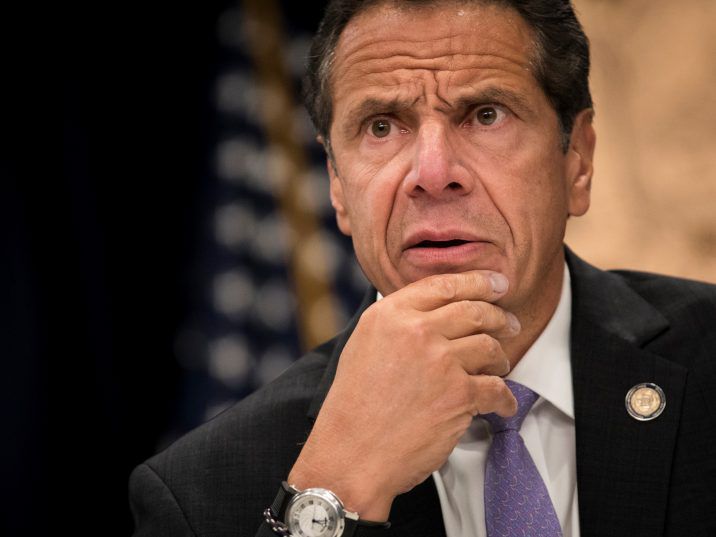Baron23
Well-Known Member
When I saw this headline, my first thought was that this is a job for "MR. OBVIOUS"!!

New York college students overwhelmingly support cannabis legalization
College students in New York have little doubt about whether or not cannabis should be legalized in the Empire State, with more than 90 per cent voicing support for such a move.
That preference was made clear as part of a new survey from Siena College Research Institute. The admittedly unscientific survey involving 250 undergraduate and graduate students reflected input from about a dozen of New York’s 13 state universities, according to Merry Jane.
That high support seems to make sense given many respondents are “consuming an array of cannabis products on campuses, including CBD,” and that many college types regard weed as causing less potential damage than either alcohol or tobacco. With regard to the former, 47 per cent of those polled said they are not concerned about weed’s effects on their health at all compared to 46 per cent who reported being “very concerned” about the health effects of cigarettes, according to Democrat & Chronicle.
The view of alcohol compared to cannabis is somewhat reminiscent of research published earlier this year by Oregon State University that found college students in states with legalized weed smoked more, but binge-drank less than their counterparts in non-legal states.

College students regard weed as causing less potential damage than either alcohol or tobacco. / ViewApart / iStock / Getty Images Plus ViewApart / iStock / Getty Images Plus
In the case of New York, it is not clear if the views of young people will influence state government efforts to finally get some form of recreational cannabis legalization on the books. Attempts have been made over the last couple of years, but have ultimately failed, the last largely the result of the double-whammy of budget hurdles and COVID-19.
This past January, 58 per cent of voters surveyed said they would support legalizing recreational weed across the state. This adds to a Quinnipiac University poll released a year earlier in January 2019.

Governor Andrew Cuomo has voiced his support of legalizing recreational pot, but has been unable to get it through. / Photo: Drew Angerer/Getty Images Drew Angerer/Getty Images
Of the 929 New York State voters polled, 65 per cent said they would support allowing adults in New York State to legally possess small amounts of marijuana for personal use. That said, 59 per cent would support the sale of legal marijuana in their communities and just 28 per cent said they would definitely or probably try weed if it were legalized for recreational use.
Governor Andrew Cuomo has voiced his support of legalizing cannabis in the state, including most recently in late May. That effort, however, will need to wait until next year’s budget.
New York college students overwhelmingly support cannabis legalization
College students in New York have little doubt about whether or not cannabis should be legalized in the Empire State, with more than 90 per cent voicing support for such a move.
That preference was made clear as part of a new survey from Siena College Research Institute. The admittedly unscientific survey involving 250 undergraduate and graduate students reflected input from about a dozen of New York’s 13 state universities, according to Merry Jane.
That high support seems to make sense given many respondents are “consuming an array of cannabis products on campuses, including CBD,” and that many college types regard weed as causing less potential damage than either alcohol or tobacco. With regard to the former, 47 per cent of those polled said they are not concerned about weed’s effects on their health at all compared to 46 per cent who reported being “very concerned” about the health effects of cigarettes, according to Democrat & Chronicle.
The view of alcohol compared to cannabis is somewhat reminiscent of research published earlier this year by Oregon State University that found college students in states with legalized weed smoked more, but binge-drank less than their counterparts in non-legal states.

College students regard weed as causing less potential damage than either alcohol or tobacco. / ViewApart / iStock / Getty Images Plus ViewApart / iStock / Getty Images Plus
In the case of New York, it is not clear if the views of young people will influence state government efforts to finally get some form of recreational cannabis legalization on the books. Attempts have been made over the last couple of years, but have ultimately failed, the last largely the result of the double-whammy of budget hurdles and COVID-19.
This past January, 58 per cent of voters surveyed said they would support legalizing recreational weed across the state. This adds to a Quinnipiac University poll released a year earlier in January 2019.

Governor Andrew Cuomo has voiced his support of legalizing recreational pot, but has been unable to get it through. / Photo: Drew Angerer/Getty Images Drew Angerer/Getty Images
Of the 929 New York State voters polled, 65 per cent said they would support allowing adults in New York State to legally possess small amounts of marijuana for personal use. That said, 59 per cent would support the sale of legal marijuana in their communities and just 28 per cent said they would definitely or probably try weed if it were legalized for recreational use.
Governor Andrew Cuomo has voiced his support of legalizing cannabis in the state, including most recently in late May. That effort, however, will need to wait until next year’s budget.
 I thought we were trying to discourage these types of false police reports. I read the source of this
I thought we were trying to discourage these types of false police reports. I read the source of this
 The states surrounding NYS will probably move forward and legalize further in the following months while NYS continues to hem and haw.
The states surrounding NYS will probably move forward and legalize further in the following months while NYS continues to hem and haw. 